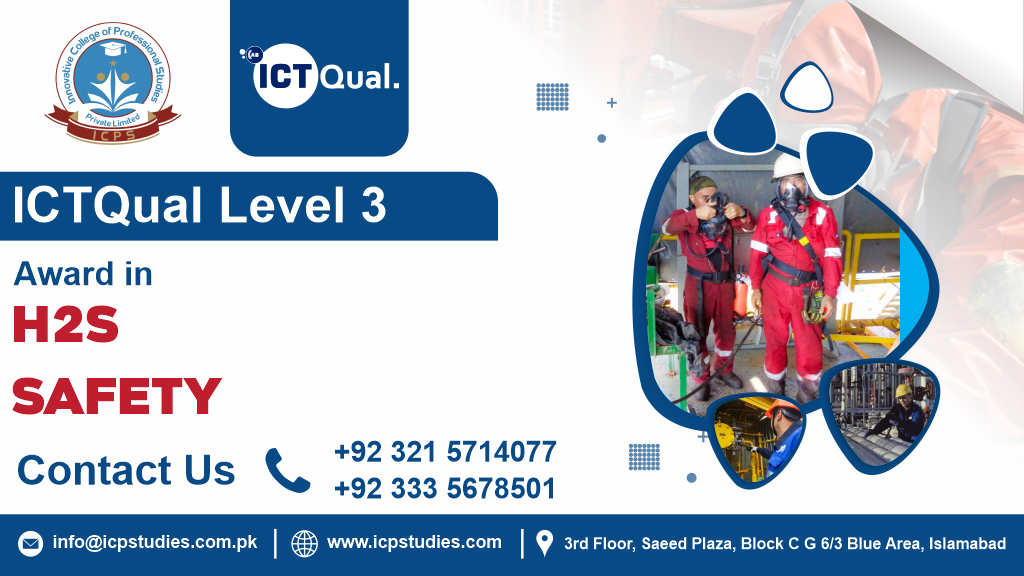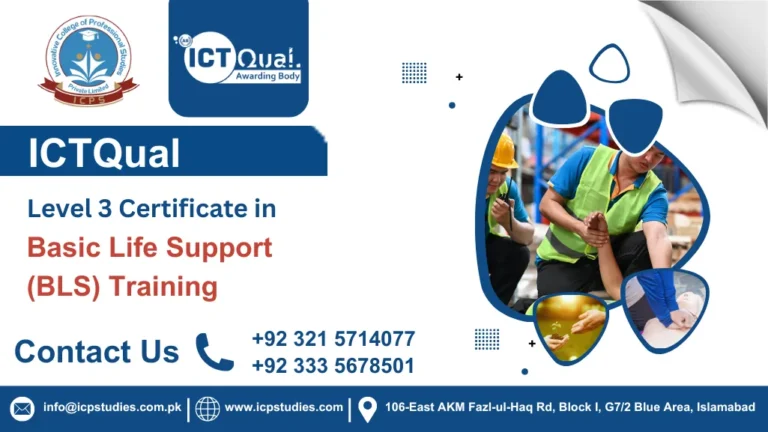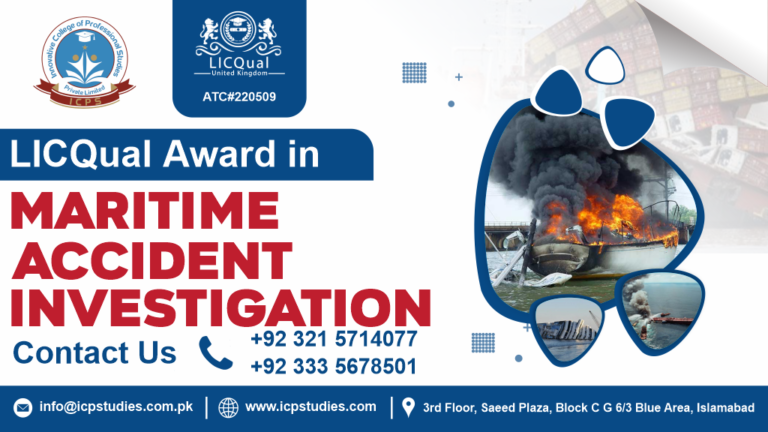Hydrogen sulfide (H2S) is a hazardous gas commonly found in various industrial environments, presenting significant risks to health and safety. The Level 3 Award in H2S Safety is a specialized training program designed to equip professionals with the knowledge and skills necessary to recognize, assess, and mitigate the dangers associated with H2S exposure.
The Level 3 Award in H2S Safety is a comprehensive certification program aimed at individuals working in industries where exposure to hydrogen sulfide gas is a potential hazard. Developed in accordance with industry standards and best practices, this course provides participants with essential training to ensure safe practices and emergency response protocols in environments where H2S may be present.
Level 3 Award in H2S Safety is not just a certification but a critical investment in ensuring workplace safety and regulatory compliance in environments prone to hydrogen sulfide exposure. By equipping professionals with essential knowledge and practical skills, this certification plays a vital role in safeguarding health, preventing incidents, and fostering a culture of safety excellence in industries where H2S is a potential hazard.
All About ICTQual Level 3 Award in H2S Safety
Course Overview
The Level 3 Award in H2S Safety is a specialized certification designed to equip individuals with the knowledge and skills necessary to manage risks associated with hydrogen sulfide (H2S) in various industrial settings. H2S is a highly toxic and flammable gas that can pose serious health hazards, including respiratory problems, eye irritation, and even death at high concentrations. Therefore, understanding how to safely handle, detect, and respond to H2S incidents is critical for maintaining workplace safety.
Level 3 Award in H2S Safety is a crucial certification for individuals working in industries where H2S gas poses significant risks. It equips professionals with essential knowledge and skills to protect themselves and others from H2S-related hazards, ensuring compliance with safety regulations and fostering a culture of safety excellence in the workplace. This certification not only enhances career prospects but also contributes to creating safer working environments for all.
Study Units
- Understanding Hydrogen Sulfide (H2S)
- H2S Detection and Monitoring
- Control Measures and Engineering Controls
- Personal Protective Equipment (PPE)
- Emergency Response Procedures
- Legislative and Regulatory Requirements
- Case Studies and Practical Scenarios
- Safety Culture and Risk Awareness
To enroll in the ICTQual Level 3 Award in H2S (Hydrogen Sulfide) Safety, participants typically need to meet the following requirements:
- Age Requirement: Participants should be at least 18 years old.
- Basic Literacy and Numeracy: A good understanding of English, along with basic literacy and numeracy skills, is essential for completing the course.
- Relevant Experience: Prior experience in industries where H2S exposure may occur (e.g., oil and gas, wastewater treatment) is beneficial.
- Knowledge of Health and Safety Regulations: Familiarity with health and safety practices related to hazardous substances is advantageous.
- Course Registration: Participants must register for the course through an accredited training provider.
- Payment: Course fees must be paid as required by the training provider.
- Commitment to Attend: Participants should be prepared to attend the full duration of the course and complete any required assessments to receive certification.
The ICTQual Level 3 Award in H2S (Hydrogen Sulfide) Safety is designed for:
- Oil and Gas Workers: Individuals involved in exploration, drilling, or production where H2S exposure is a risk.
- Chemical Plant Personnel: Employees working in environments that handle hazardous substances, including H2S.
- Wastewater Treatment Operators: Personnel responsible for managing processes that may involve H2S.
- Emergency Responders: First responders who may encounter H2S situations and need to understand safety protocols.
- Health and Safety Professionals: Individuals tasked with ensuring compliance with safety regulations related to hazardous gases.
- Supervisors and Managers: Those overseeing teams in environments where H2S exposure is a concern and needing to ensure proper safety measures.
Learning Outcome
- Understanding Hydrogen Sulfide (H2S)
- Identify the properties, characteristics, and health hazards associated with H2S exposure.
- Explain the sources and potential risks of H2S in various industrial environments.
- Describe the physiological effects of H2S on the human body and recognize symptoms of exposure.
- H2S Detection and Monitoring
- Demonstrate proficiency in using H2S detection equipment and interpreting monitoring results.
- Implement effective monitoring strategies to detect H2S presence in different workplace scenarios.
- Identify appropriate monitoring locations and frequencies based on potential H2S sources and exposure risks.
- Control Measures and Engineering Controls
- Evaluate and recommend engineering controls to minimize H2S exposure levels in the workplace.
- Implement administrative controls to reduce the likelihood and severity of H2S incidents.
- Develop control measures specific to the elimination, substitution, or isolation of H2S sources.
- Personal Protective Equipment (PPE)
- Select and use appropriate PPE for H2S environments based on exposure levels and job tasks.
- Inspect, don, doff, and maintain PPE correctly to ensure effectiveness and compliance.
- Demonstrate proper emergency procedures when PPE fails or during unexpected H2S exposure incidents.
- Emergency Response Procedures
- Develop and implement emergency response plans specific to H2S incidents.
- Execute emergency procedures effectively, including evacuation, rescue, and first aid responses.
- Coordinate with emergency responders and other stakeholders during H2S-related emergencies.
- Legislative and Regulatory Requirements
- Interpret and apply relevant legislative and regulatory requirements related to H2S safety.
- Ensure compliance with local, national, and international standards governing H2S exposure limits and safety practices.
- Advocate for continuous improvement in H2S safety measures through adherence to regulatory frameworks.
- Case Studies and Practical Scenarios
- Analyze case studies and practical scenarios to apply theoretical knowledge to real-world H2S safety challenges.
- Evaluate past incidents and lessons learned to improve current H2S safety practices.
- Collaborate with peers to develop innovative solutions and strategies for managing H2S risks effectively.
- Safety Culture and Risk Awareness
- Promote a safety culture that emphasizes awareness, communication, and accountability in managing H2S risks.
- Foster a proactive approach to risk assessment and mitigation among colleagues and stakeholders.
- Engage in continuous learning and professional development to stay informed about evolving H2S safety practices and technologies.
These learning outcomes ensure that participants of the Level 3 Award in H2S Safety acquire comprehensive knowledge and skills to mitigate risks associated with hydrogen sulfide exposure effectively.
FAQs about ICTQual Level 3 Award in H2S Safety







